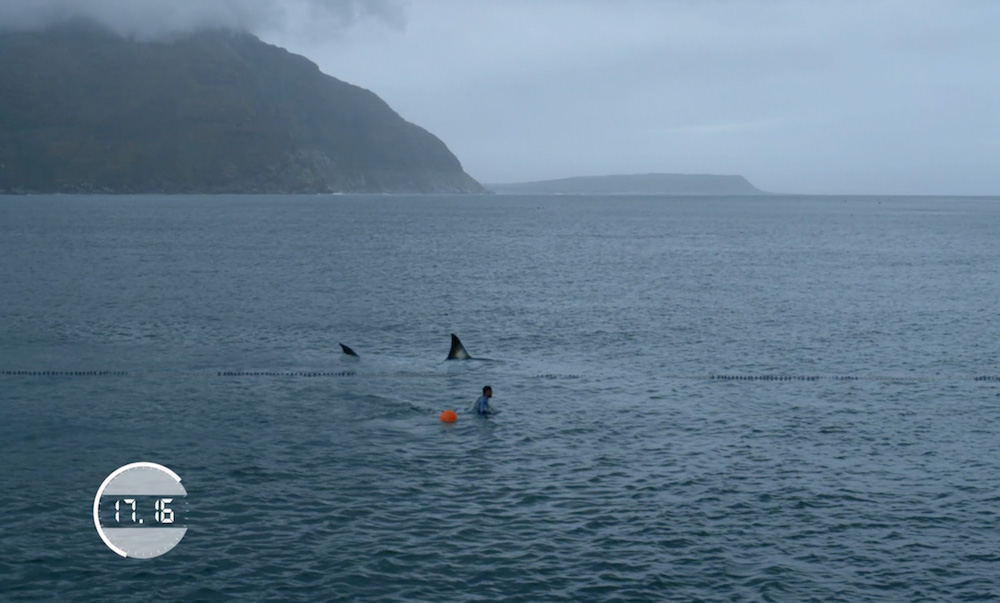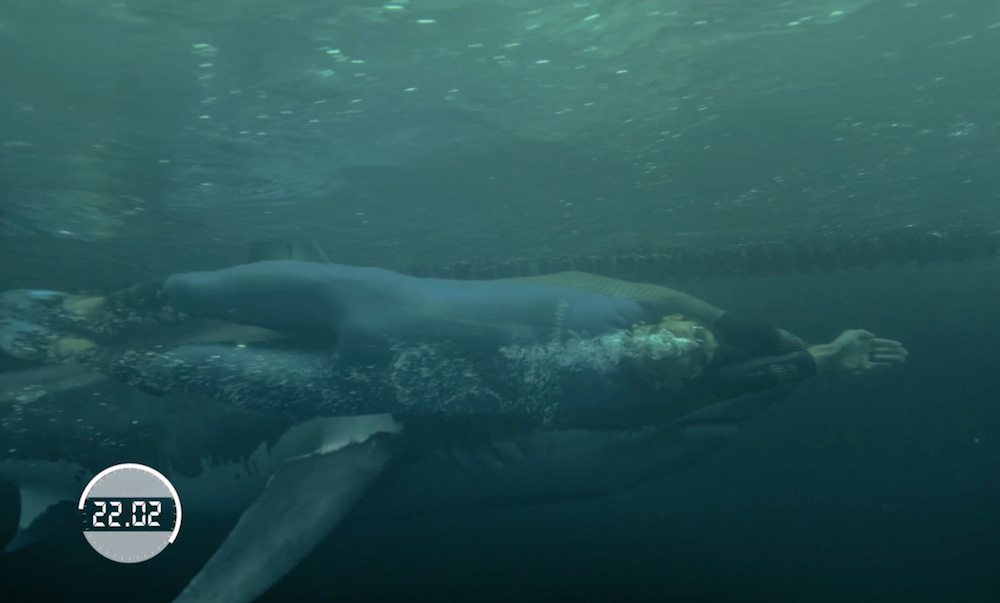Great White Takes Gold! Shark Bests Phelps by 2 Seconds
Granted, Phelps didn't race directly against the sharks during the hour-long broadcast, called "Phelps vs. Shark: Great Gold vs. Great White." Rather, the Discovery Channel clocked the swim times of three types of sharks: the hammerhead, great white and reef, and then created computer-generated images so it appeared as if Phelps were racing against the animals side by side in the open water off South Africa.
Even though the virtual great white shark (Carcharodon carcharias) bested the Olympian, Phelps wasn't completely left in the dust. In the 100-meter (330 feet) race, Phelps clocked in at 38.1 seconds. The virtual great white shark finished the 100-meter race in 36.1 seconds. [See Photos of Great White Sharks Breaching the Water's Surface]
Before the 100-meter finale, Discovery had Phelps swim in a shorter, 50-m (164 feet) race against virtual reef and hammerhead sharks. Incredibly, Phelps finished in 18.7 seconds, beating the reef shark by 0.2 seconds. But he lost against the hammerhead, which finished with a time of 15.1 seconds.

Phelps has set 39 world records and won 23 Olympic golds, but he still needed a helping hand to compete against the sharks. So, Discovery gave him a monofin flipperthat added a few miles per hour to his speed. For comparison, Phelps' set a world record for the 100-meter butterfly in Rome in 2009 with a time of 49.82 seconds — 11.7 seconds longer than his race in open water with the monofin.
Phelps also wore a Phantom wetsuit that reportedly increased his buoyancy and reduced his drag, according the suit's maker, Aqua Sphere.
In fact, Phelps' getup was one of the few details that Discovery divulged about the race before it aired. The lack of details made many shark biologists wary, as sharks are usually depicted as villains of the ocean, and footage of them is often paired with menacing music.
"However, the show turned out to be good, clean fun and provided several opportunities to showcase shark science," Andrew Nosal, a marine biologist and shark scientist from Scripps Institution of Oceanography in San Diego, who is not involved with the Discovery Channel program, told Live Science in an email.
Sign up for the Live Science daily newsletter now
Get the world’s most fascinating discoveries delivered straight to your inbox.
He added that "any show not about shark attacks" is welcome. Except for "Great White Shark Serial Killer Lives," a show about a supposed serial killer shark that aired last night, "Shark Week had a great first day with much less sensationalism, fearmongering and misinformation than in recent years," Nosal said.

As for Phelps, the race gave him a new "appreciation for how fast [sharks] move through the water, especially at their size," he told USA Today. But because the water was so cold — only about 55 degrees Fahrenheit [13 degrees Celsius] — the swimmer asked for another go in a tweet, saying, "Rematch? Next time ... warmer water. #SW30 @Discovery@SharkWeek"
Some viewers wondered why Phelps wasn't racing the fastest shark in the ocean: the mako shark.
However, if Phelps can't beat a great white shark, a fish that can swim about 25 mph (40 km/h), it makes little sense for him to race against the world's fastest shark, the mako, which can reach speeds of between 40 and 60 mph (64 and 96 km/h), Nosal said.
"[It's] a moot point," Nosal said.
Original article on Live Science.

Laura is the archaeology and Life's Little Mysteries editor at Live Science. She also reports on general science, including paleontology. Her work has appeared in The New York Times, Scholastic, Popular Science and Spectrum, a site on autism research. She has won multiple awards from the Society of Professional Journalists and the Washington Newspaper Publishers Association for her reporting at a weekly newspaper near Seattle. Laura holds a bachelor's degree in English literature and psychology from Washington University in St. Louis and a master's degree in science writing from NYU.









